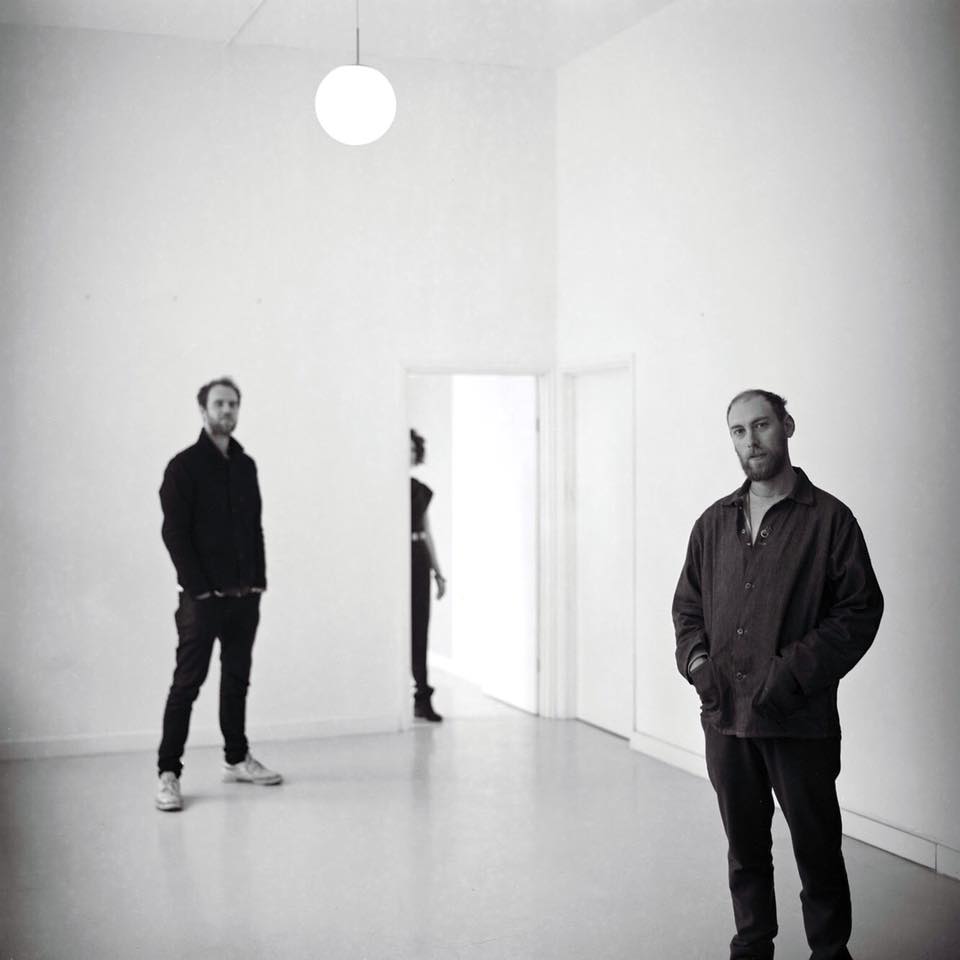Shoes off. Feet up. Kicking it back in the tight and cosy backstage of Belgrave Music Hall, I am welcomed by the warm and gentle aura of Elder Island. The band have been sparking huge interest on the gig circuits recently for their unique blend of electronics, synthesizers and the occasional electric cello. Having kicked off their tour with high-energy shows in Dublin, Manchester and Birmingham, they arrive in Leeds, looking to maintain the hectic crowds. Before the show is due to set alight, however, the band sit down to reflect on their journey so far and what lies ahead for them.
The first talking point is the band’s long-awaited debut album, The Omnitone Collection, which is due to be released in February 2019. Whilst they have been used to writing music and cramming ideas together in between tours, the album has been their first opportunity to sit down, jam and write a full set of new material without the distraction of the next gig. Having previously taken a DIY approach by self-producing their two EPs, guitarist Dave explains their fresh approach towards the recording of the album by working with a producer: “We recorded a lot at home and work on a lot ourselves, then we worked with Ali Chant at Playpen Studios, which is literally just around the corner from my house, which made it easier.” As the singles ‘Don’t Lose’ and ‘You & I’ demonstrate, the result is a much cleaner, fuller and more focussed sound, which builds evermore strongly on their previous releases.
Yet a certain sense of the DIY ethic has been maintained through the album’s artwork. The concept is built out of an assortment of technological devices which the band have created themselves, the idea being that each device is related to each track on the album. As frontwoman Katy reveals a sneak peak of the artwork, she explains that it was all shot in bassist Luke’s garden – taking a look, it’s hard to believe that something so simple could produce such amazing quality.
The conversation turns, however, towards the band’s diverse sound; it is the amalgamation of a wide range of influences, interspersed with an eagerness to experiment. Whilst Dave and Luke were playing in indie bands throughout their teens, there was already a clear urge to push the sounds of their instruments into new directions through the use of electronics. “We were most interested in how you could manipulate that sound the most”, Luke recalls, drawing on the main question which the pair had in those early days: “how do you make it not sound like the instrument you were playing?” With numerous tools at their disposal, such as effects and loop pedals, Luke and Dave have always been aiming to push the sonic possibilities of their music. Yet as time went on, and with greater influence coming from electronic artists such as Aphex Twin, Hiorthøy and Daft Punk, this eye for electronic experimentation soon branched off into more expansive equipment like MPC drum machines and synthesizers.

It was not until they met Katy at university that the three-piece started to form, albeit in a different shape to what they are now. In these formative years, partly stemming from Katy’s learning of the cello, the band had a much greater footing in folk, whilst the electronic side developed gradually. “I suppose it was combining those two things,” Katy says, “you had the folky background and then you had this kind of love for dance music and we combined the two. That is kind of what we do now.” Whilst the sound of these two genres may appear historically to be polar opposites, Elder Island manage to find a natural space along this spectrum that works wonders.
Having such a varied palate does pose its own peculiarities, however, as Dave picks up on the bizarre moments which unfold during the recording process: “We might play something very casual, like Katy might be doing a cello loop and then we build some drums into it. But then half an hour later, all of a sudden it is the dirtiest techno sound.” Through the hysterical imitations of what these sounds entail, there is a sense of a band that find great pleasure in bridging the gaps between the dark and the delicate.
On the other hand, the live setting benefits significantly from this blending of styles. With a number of party anthems within the band’s catalogue, such as ‘Bonfires’ and ‘Bamboo’, a constant sense of balance, between cello or ambient synth breaks and invigorating points of release in dance grooves, is a matter of maintaining attention spans. Here, Katy highlights the power which they possess in being able to build and manipulate layers as they please: “It’s not like a backing track. It’s not like we always have to work to a metronome, which is nice because you can come in and out of it.” As is quite rare within more electronic forms of music, there are moments in which Elder Island get to play around with the regular beat grids, which provide a chance for their crowds to reenergise, before being pulled back into euphoric climaxes.
As the interview draws to an end, I ask what the plans for 2019 are besides the album release. “Touring”, Katy responds, with a slight twang in her voice, suggesting the arduous task of preparation which looms ahead. As a band that is not afraid to work hard and push themselves, it is exciting to see where their constant efforts will take them next.
Kieran Blyth
Header Image via Facebook

